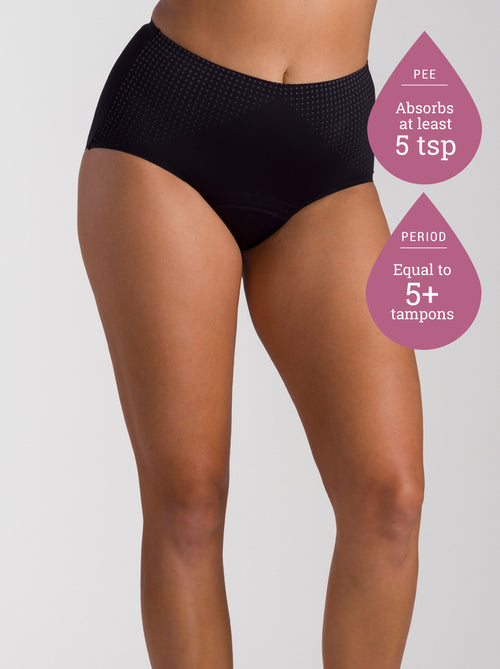Living with
heavy periods can be messy, expensive and often painful.
For many women they’re just a fact of life, with no apparent cause and few treatment options beyond basic pain management techniques and painkillers.
But for others,
menorrhagia
(the medical term for abnormally heavy or prolonged menstrual bleeding) can be a sign that you’ve got an underlying health issue, so it’s important to see a doctor if you notice changes in your cycle. We answer your menstruation questions:
How do I know if my periods are normal?
The average amount of blood lost during the course of a period is between 6 to 8 teaspoons, and periods can last from three to 10 days and occur as often as every three weeks or as infrequently as six weeks. That’s quite a variation, so what’s normal for you might be different from what's normal for someone else. The important thing is to be aware of changes to your regular rhythm, which can be caused by age, stress, diet, exercise or medical conditions.
The NHS in the UK defines heavy menstrual bleeding as losing 16 tsp/80ml/2.7 fl oz or more in each period, having periods that last longer than seven days, or both. Signs that your periods are heavy include:
- needing to change your sanitary protection after less than two hours
- needing to double up on sanitary protection, for example using pads and tampons together
- large clots in your menstrual blood
What causes heavy bleeding?
In about half of cases there’s no obvious reason why a woman has heavy periods, but sometimes the cause can be identified as one of the following:
- fibroids or polyps (non-cancerous growths in or around the womb)
- endometriosis (where the uterine tissue grows outside the uterus)
- adenomyosis (when the uterine tissue embeds in the wall of the uterus)
- pelvic inflammatory disease (an infection of the upper genital tract)
- cancer of the womb
- hormone imbalance caused by polycystic ovary syndrome (PCOS), obesity, insulin resistance or thyroid problems
- anticoagulant or chemotherapy medications
- insertion of a new intrauterine device or system (IUD or IUS)
- herbal supplements
Are heavy periods a problem?
Aside from the obvious inconvenience and cost of having to change your protection frequently, and the worry about leaking through your clothes or pyjamas, for some women
heavy periods can be incredibly painful.
They can also be an indication of an underlying health issue, and the blood loss can lead to iron deficiency anaemia, so it’s always worth mentioning changes in your cycle to your doctor. Cycle-tracking apps, such as Clue and Flo, can be useful for keeping a record of your flow prior to your appointment.
What can I do at home to manage the pain?
Many women find they can manage the pain associated with heavy periods by:
- taking paracetamol or ibuprofen
- curling up on their side with a hot water bottle on their tummy
- gentle massage of the affected area
- gentle exercise
- relaxation techniques and breathing exercises
When should I see a doctor?
You should see a doctor if:
- your periods become heavier or longer than usual
- you soak one or more sanitary pads or tampons every hour for several hours
- you have to wake up in the night to change your menstrual protection
- you experience bleeding between periods (metrorrhagia), which can be a sign of hormone imbalance,
endometriosis
, uterine fibroids or cancer of the uterus
- you’re experiencing very painful periods (dysmenorrhea/dysmenorrhoea)
- you experience pale skin, weakness and fatigue, which can be signs of anemia caused by excessive blood loss
- you’re worried about any aspect of menstruation
How will my doctor figure out what’s going on?
To diagnose the cause of your heavy periods, your doctor may:
- ask about your heavy bleeding, changes to your periods and other symptoms
- examine you
- refer you for blood tests
- refer you for diagnostic procedures such as a pap test, biopsy, ultrasound scan or hysteroscopy
What treatment is available?
Treatment will depend on the underlying cause of your heavy periods, your medical history and various other factors, but your options may include:
- referral to a pain management course
- a form of contraception, such as an intrauterine device or system (IUD or IUS) the combined pill, to regulate your periods
- non-hormonal medication
- procedures such as endometrial ablation (to remove the lining of the womb), myomectomy (to remove fibroids) or hysterectomy (to remove to the womb)
This information is of a general nature and not intended to replace the advice of a medical professional. Should you have any concerns relating to menstruation, contact your doctor.




